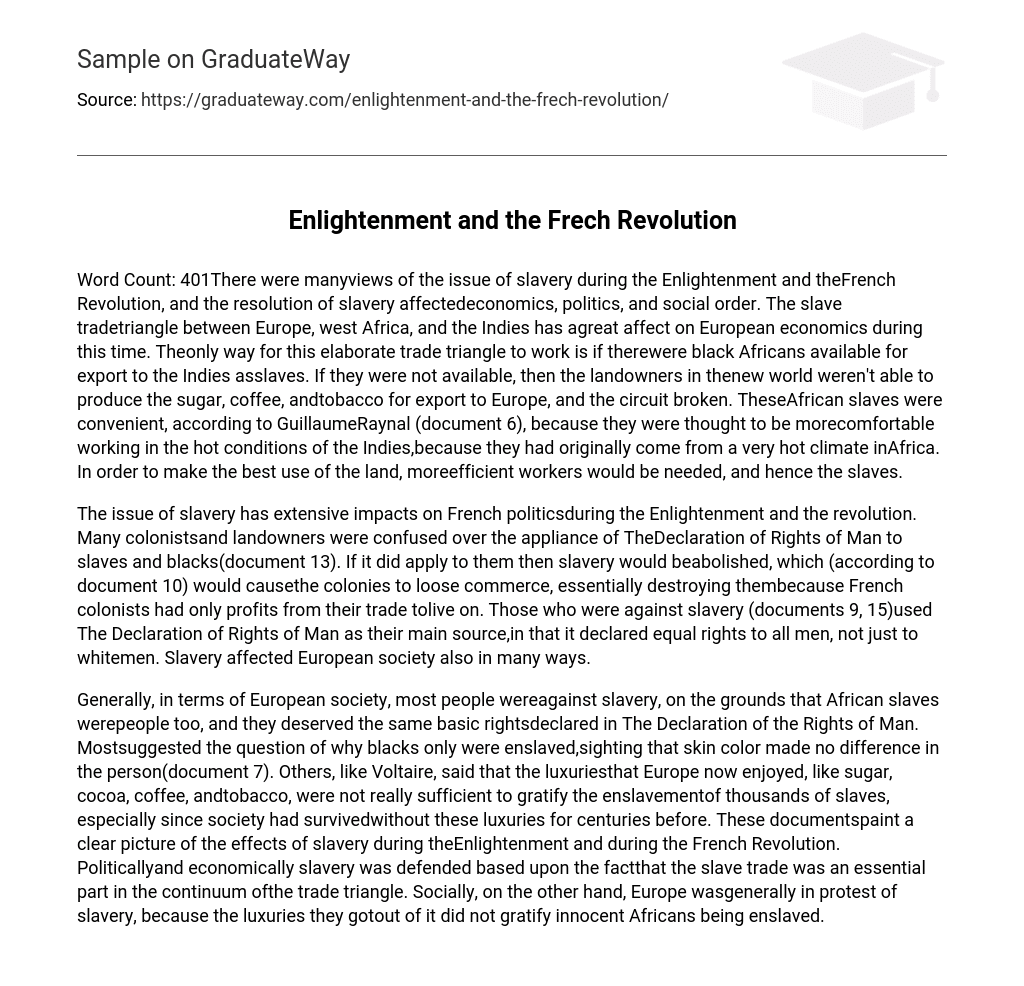Word Count: 401There were manyviews of the issue of slavery during the Enlightenment and theFrench Revolution, and the resolution of slavery affectedeconomics, politics, and social order. The slave tradetriangle between Europe, west Africa, and the Indies has agreat affect on European economics during this time. Theonly way for this elaborate trade triangle to work is if therewere black Africans available for export to the Indies asslaves. If they were not available, then the landowners in thenew world weren’t able to produce the sugar, coffee, andtobacco for export to Europe, and the circuit broken. TheseAfrican slaves were convenient, according to GuillaumeRaynal (document 6), because they were thought to be morecomfortable working in the hot conditions of the Indies,because they had originally come from a very hot climate inAfrica. In order to make the best use of the land, moreefficient workers would be needed, and hence the slaves.
The issue of slavery has extensive impacts on French politicsduring the Enlightenment and the revolution. Many colonistsand landowners were confused over the appliance of TheDeclaration of Rights of Man to slaves and blacks(document 13). If it did apply to them then slavery would beabolished, which (according to document 10) would causethe colonies to loose commerce, essentially destroying thembecause French colonists had only profits from their trade tolive on. Those who were against slavery (documents 9, 15)used The Declaration of Rights of Man as their main source,in that it declared equal rights to all men, not just to whitemen. Slavery affected European society also in many ways.
Generally, in terms of European society, most people wereagainst slavery, on the grounds that African slaves werepeople too, and they deserved the same basic rightsdeclared in The Declaration of the Rights of Man. Mostsuggested the question of why blacks only were enslaved,sighting that skin color made no difference in the person(document 7). Others, like Voltaire, said that the luxuriesthat Europe now enjoyed, like sugar, cocoa, coffee, andtobacco, were not really sufficient to gratify the enslavementof thousands of slaves, especially since society had survivedwithout these luxuries for centuries before. These documentspaint a clear picture of the effects of slavery during theEnlightenment and during the French Revolution. Politicallyand economically slavery was defended based upon the factthat the slave trade was an essential part in the continuum ofthe trade triangle. Socially, on the other hand, Europe wasgenerally in protest of slavery, because the luxuries they gotout of it did not gratify innocent Africans being enslaved.





